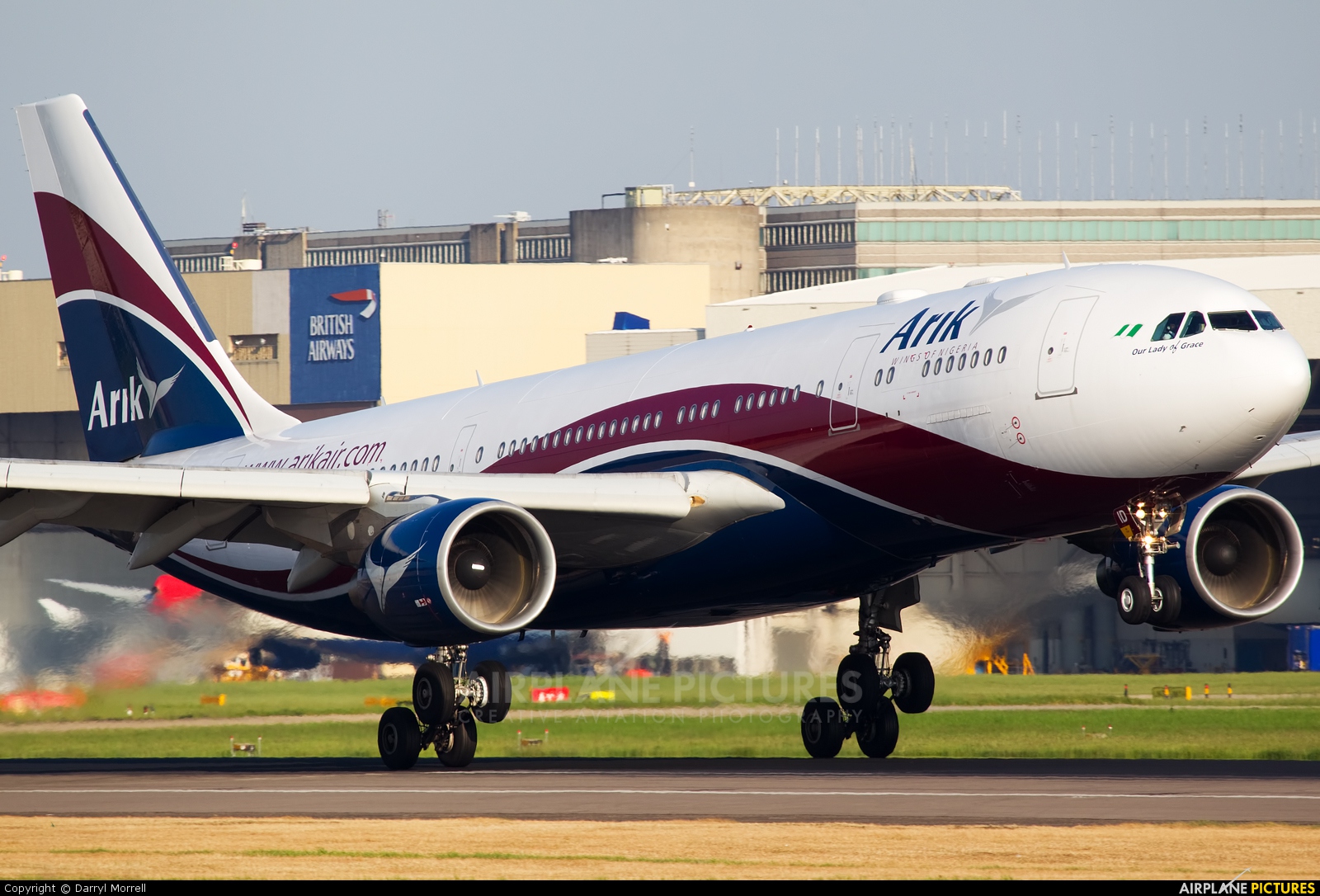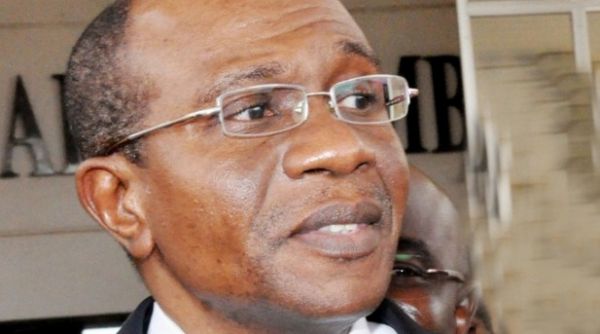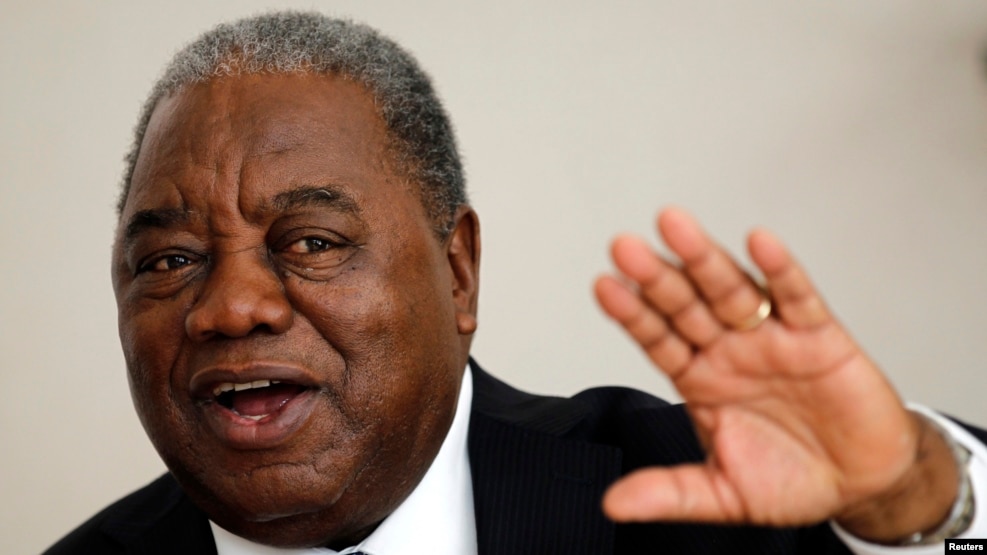Wednesday, 30 November 2016
Nigeria's forex reserves rise for first time in 15 months
Nigeria's official foreign exchange reserves stood at $24.69 bln on Nov. 28, central bank data showed on Wednesday, the first monthly rise in 15 months.That left the reserves up 3.1 percent on the previous month. A year earlier reserves stood at $30 billion.The Central Bank of Nigeria gave no reason for the rise.
However, global oil prices recovered slightly during the period as OPEC members tried to strike oil output deal.
(C) Reuters Ne...
Nigeria's UBA gets $150 mln AfDB credit line, to support SMEs, power sector
African Development Bank Group (AfDB) on Wednesday signed a $ 150 million loan agreement with Nigeria's United Bank for Africa (UBA). to finance infrastructure and SME projects, including women-owned enterprises in Nigeria.
In a statement by AfDB, the Fund will support development of productive sectors of the economy; particularly the power sector, Infrastructure, Women-owned enterprises as well as SMEs. "This line of credit comes at an opportune...
Swiss authorities carry out fresh house searches in FIFA case

Swiss authorities have searched more houses as part of their criminal investigation into suspected corruption in world soccer and have added former FIFA general secretary Urs Linsi to their list of suspects, they said on Wednesday.
"The Office of the Attorney General (OAG) of Switzerland confirms that on 23 November 2016 it conducted house searches with the support of the Federal Office of Police (fedpol) at various locations in the German-speaking...
Nigeria's power distribution firms frustrating NERC’s Regulatory Duties – Fashola
Nigeria's Minister of Power, Works and Housing, Babatunde Fashola has alleged that the 11 electricity distribution companies (Discos) have become stumbling blocks to the smooth regulation of the power sector by the Nigerian Electricity Regulatory Commission (NERC).
He also said the Discos were largely responsible for the delay in the settlement of debts owed them by federal government agencies that consumed electricity without paying.
Speaking...
Saudi signals compromise for Iran as OPEC debates output cut

Saudi Energy Minister Khalid al-Falih said on Wednesday OPEC was close to clinching a deal to limit oil output, adding Riyadh would agree to Iran freezing production at pre-sanctions levels.The comments could be seen as a compromise by Riyadh, which in recent weeks insisted that Iran fully participate in any cut.
Brent crude futures jumped more than 5 percent to above $49 a barrel. The Organization of the Petroleum Exporting Countries started a...
Nigeria to finish Eurobond sale by end Q1, make currency more flexible - vice president
Nigeria hopes to conclude the sale of a $1 billion Eurobond by the end of the first quarter of 2017 and will seek to make its foreign exchange market more flexible, vice president Yemi Osinbajo said on Tuesday.
Nigeria is in its deepest recession in 25 years and needs to find money to make up for shortfall in its budget. Its revenues from oil have plunged due to low international prices and militant attacks in its crude-producing heartland, the...
Monday, 28 November 2016
Incoming U.N. chief places high hopes on China's greater role
The United Nations' incoming secretary general on Monday placed high hopes on China's greater role in making the world a more peaceful place, calling it a "solid pillar" of multilateralism.
"Cooperation between China and the U.N. is absolutely essential," Antonio Guterres, a former Portuguese prime minister, who will begin his five-year term as the new U.N. chief on Jan. 1, said in Beijing. "China can play a very important role in the diplomacy...
MTN discussed share sale of Nigerian unit with local regulator - SEC
South Africa's telecom group MTN has met with Nigeria's Securities and Exchange Commission (SEC) to discuss a possible initial public offering and how it wanted to structure the share sale, the head of Nigeria's SEC told Reuters.
SEC director general, Mounir Gwarzo, said MTN had discussed the possibility of issuing various classes of shares to targeted investor groups. He said the telecom firm was looking at three different classes, which would...
Nigerian Oil Sector Suffers from Security, Regulation and Weak Infrastructure - Fitch Ratings

The Nigerian oil & gas sector continues to suffer from security issues and weak oil prices that drag down the ratings of indigenous oil & gas companies, says Fitch Ratings in a new presentation.
Significant oil oversupply and increase in oil inventories have contributed to the collapse in the global oil prices since the second half of 2014. The 14-member OPEC, of which Nigeria is a member, was partially responsible for the supply glut. Global...
South Africa's Zuma faces no-confidence vote by top ANC committee
South Africa's scandal-plagued President Jacob Zuma faces a no-confidence vote on Monday by the ANC's National Executive Committee (NEC), with at least three of his cabinet ministers turning against him, local media reported.
The NEC, which can remove Zuma from office, extended a scheduled weekend meeting into a third day on Monday after Tourism Minister Derek Hanekom proposed the no-confidence motion on Saturday, the Afrikaans-language daily Beeld...
Saturday, 26 November 2016
Nigeria considers importing crude oil from Niger due to militant attacks

Nigeria, typically Africa's biggest crude oil producer, is considering importing crude from neighbouring Niger due to militant attacks on pipelines in the Niger Delta that feed its refineries, a state oil company spokesman said on Friday.
Nigeria's crude production, which was 2.1 million barrels per day (bpd) at the start of 2016, fell by around a third in the summer following a series of attacks since January by Delta militants who want a greater...
Nigerian bank FCMB says plans 7.5 bln naira Tier-II debt issue

Nigerian bank FCMB plans to raise 7.5 billion naira ($25 million) in so-called Tier-II supplementary debt by year-end to strengthen its capital base, it said on Friday.
The bank had said in August it will raise between 10 to 15 billion naira of Tier II capital, targeting retail investors for the offering.On Friday FCMB also posted a rise in pre-tax profits to 14.18 billion naira in the first nine months of the year, up from 2.56 billion naira in...
Nigerian interbank rate flat as market awaits monthly budget cash flow

Nigeria's overnight interbank lending rate held steady for the second consecutive week at 14 percent on Friday even as the market anticipated the injection of October budgetary allocations to government agencies to boost liquidity in the system.
On Wednesday, Nigeria distributed 420 billion naira ($1.34 billion) between its three tiers of government from crude oil revenues for the month of October.Traders said half of the amount distributed, which...
Friday, 25 November 2016
Kenyan ride-hailing app Little may expand into Nigeria or Uganda
Kenyan ride-hailing app Little, which is backed by telecoms operator Safaricom, is considering expansion into Nigeria or Uganda in the first quarter of 2017, the chief executive of its parent firm said.Little was launched by Safaricom and Nairobi software firm Craft Silicon in July to compete with Uber. "We plan to go by the first quarter of next year. Most probably it will be either Nigeria or Uganda. We are thinking of one of the two countries," Kamal Budhabhatti, chief executive of Craft Silicon, told Reuters.He said the service was growing,...
Thursday, 24 November 2016
Exotix Partner says Nigeria's GTBank remains our top pick
We are taking a more cautious view on Nigerian banks going into the end of the year. Bonds have fared well relative to the sovereign following the US election – at one point the GT Bank 2018 bond was quoted only 50bp wider than the NIGERIA 2018. We now think that spreads are unlikely to tighten in the short term.
Most recent developments regarding FX policy have not been positive. Further, activity by militants has impacted oil production and it...
Nigerian lawmakers say 2017 draft budget has unrealistic assumptions
A draft budget framework for 2017 submitted to parliament by Nigerian President Muhammadu Buhari is based on unrealistic assumptions about oil production and the currency exchange rate, lawmakers said on Wednesday.
Nigeria slid into recession in the second quarter for the first time in 25 years , largely because oil price fell. Crude oil sales account for 70 percent of government revenue.The budget plans, which include spending a record 6.866 trillion...
Tuesday, 22 November 2016
Nigeria to raise 117 bln naira treasury bills at auction
Nigeria plans to sell 117.17 billion naira ($371.97 million) in short-dated treasury bills at an auction on Nov 30, the central bank said on Tuesday.The bank said it will sell 45.85 billion naira in three-month papers, 18 billion naira in six-month bills and 53.32 billion naira in one-year bills. Payment for the purchases would be made on Thursday.Nigeria issues treasury bills to fund its budget deficit, manage banking system liquidity and curb rising inflation. The 2016 budget deficit was estimated at 2.2 trillion naira, of which around 900 billion...
OPEC experts resume talks on oil output cut, delegates upbeat
OPEC experts discussing how to implement a plan to cut oil output are likely to reach agreement later on Tuesday, a Nigerian delegate said, a possible sign of progress in finalising the group's first supply-limiting deal since 2008.
The High-Level Committee - a technical body comprised mainly of OPEC governors and national representatives who report to their respective ministers - started a second day of talks at OPEC headquarters in Vienna at about...
Woman who 'faked a pregnancy, murdered a new mom and kidnapped her one-week-old baby' says she was promised the infant but the victim changed her mind

The woman accused of killing a Kansas woman and stealing her baby says in a jailhouse interview that the woman had agreed to give her the child but backed out of the deal at the last moment.
In a television interview in Spanish, Yesenia Sesmas told KUVN-TV of Dallas-Fort Worth that Laura Abarca-Nogueda had agreed to turn over her newborn daughter to her but reneged on the agreement. In the interview in the Dallas County jail, the 34-year-old Dallas...
Nigerian power problems old and new frustrate Buhari's economy push

Three out of six turbines idle at biggest power plantRise in Niger Delta attacks curbs gas suppliesPower producers owed huge sums by state firmPower minister seeks solution to unpaid billsGRAPHIC - power output and attacks: http://tmsnrt.rs/2fVEvhHNigeria's biggest power station shows the huge problems that President Muhammadu Buhari must overcome if he is to fulfil his promise to tackle chronic electricity shortages and reform an economy in recession.
On...
Monday, 21 November 2016
Nigeria considers foreign exchange reforms as dollar shortages bite
Nigeria is considering amendments to its foreign exchange laws to curb illegal fund transfers and insider dealing and stop individuals holding hard currency outside the banking system, a draft bill seen by Reuters on Monday showed.
Africa's largest economy is facing chronic dollar shortages caused by a slump in sales of and prices for crude oil, its mainstay, which has slashed government revenues, weakened the naira currency, stoked inflation and...
Ghana central bank reduces policy rate by 50 bps to 25.5 pct
Ghana's central bank reduced its main policy rate by 50 basis points on Monday to 25.5 percent, citing a better outlook for inflation and the need to boost growth, Governor Abdul-Nashiru Issahaku told a news conference.
"The outlook for inflation is broadly positive as reflected in the continued decline in underlying inflation (and) stability in the forex market .... Growth conditions remain weak and below trends," Issahaku said."With these considerations...
Awkward moment a groom's secret lover storms into his wedding to confront him... wearing the SAME DRESS as the bride

A spurned girlfriend stormed into the wedding of a couple in Ghana
Wearing a veil and wedding dress, she snatches the microphone
She then appears to out the cheating groom in front of family and friends
Groomsmen and bridesmaids try in vain to march her out of the venue
It was reported that the incident later led to a scuffle inside the hall
This bride-to-be and her shell-shocked groom will not forget their wedding day in a hurry.
As the couple...
Nigeria's GDP contracts by 2.24 percent in Q3
Nigerian economy slipped further into deep recession as the Gross Domestic Product (GDP), an indices used to measure economic growth contracted by 2.24 percent in the third quarter of the year, National Bureau of Statistics (NBS) has said on Monday.
Nigeria, which has Africa's largest economy, slid into recession for the first time in 25 years in the second quarter following an economic crisis triggered by a slump in crude prices that has hammered...
Saturday, 19 November 2016
Nigeria's Arik Air reduces domestic flights due to fuel shortages

Nigeria's largest airline, Arik Air, has reduced the number of domestic flights it offers due to a scarcity of aviation fuel, its spokesman said on Thursday, the latest carrier to limit services due to a currency squeeze in the country.
A sharp fall in the naira this year has made it difficult to get the U.S. dollars needed to buy jet fuel, almost all of which is imported, creating periodic shortages throughout the country.Nigerian airlines have...
Nigeria's overnight lending rate falls as t-bill payments inject cash
Nigeria's overnight interbank lending rate fell to 14 percent on Friday from 22 percent last week after the central bank repaid matured treasury bills, injecting cash into the banking system, traders said.Traders said the bank injected around 140 billion naira ($444.98 million) through its pay-out of matured open market operations bills, which helps lower borrowing costs among banks.The cash helped money-market liquidity, traders said, despite bond and treasury bill sales this week. The debt office raised 39 billion naira with local currency bonds...
Fitch rating downgrade Nigerian banks over eroded capital

Fitch Ratings has revised down the Support Rating Floors (SRFs) of 10 Nigerian banks to 'No Floor' and downgraded nine banks' Support Ratings (SRs) to '5' following a reassessment of potential sovereign support for the banking sector.
As a consequence, the Long-Term Issuer Default Ratings (IDRs) of First Bank of Nigeria Limited (FBN), FBN Holdings Plc (FBNH), Diamond Bank Plc, Fidelity Bank Plc, First City Monument Bank Limited (FCMB), and Union...
Friday, 18 November 2016
Central Bank of Nigeria to hold interest rates at 14 percent

The Central Bank of Nigeria will hold its benchmark interest rate at 14 percent at its Nov. 22 meeting with an aim to restore flagging investor confidence and an eye on rapidly-rising inflation, a Reuters poll found on Friday.
These two concerns will take precedence over stimulus for the battered oil-exporting economy, badly hit by recession in large part from the collapse in crude prices. The poll, taken this week, suggests the risk is rates may...
Zambian president proposes halving his salary amid austerity call

Zambian President Edgar Lungu has asked that his salary be cut by half as part of the government-led austerity measures aimed at reviving the country's economy, the vice-president said Friday.
Inonge Wina said in parliament when asked by opposition lawmakers that the government was serious about implementing austerity measures."This government is committed to enforcing austerity measures and the president is the first national of the country to...
Huawei hopes cheaper Nova will maintain smartphone growth in Africa

China's Huawei, the world's third-largest smartphone maker, will launch its new cheaper Nova smartphone in South Africa and Kenya early next year, looking to maintain double-digit sales growth in the continent led by its flagship P9 series.
Challenging the dominance of Samsung and Apple, the world's number one and two, Huawei has targeted 140 million smartphone sales globally in 2016 from 100 million last year, and sees Africa as a key market in...
Nigeria reaches a deal to pay $5.1 billion in unpaid bills to oil majors - minister

Nigeria has reached a deal to pay $5.1 billion in unpaid bills to oil majors including Royal Dutch Shell and Exxon Mobil, the minister of state for oil said on Thursday.
The Nigerian National Petroleum Corporation (NNPC), the OPEC member's state oil firm, has amassed a total of $6.8 billion in unpaid bills up to December 2015, so-called cash calls, that it was obliged to pay under joint ventures with Western oil firms, with which it explores for...
Subscribe to:
Posts (Atom)












